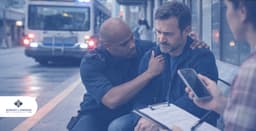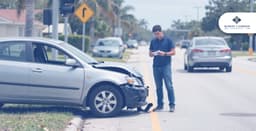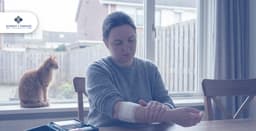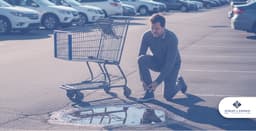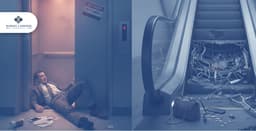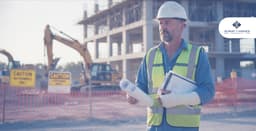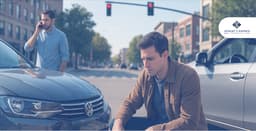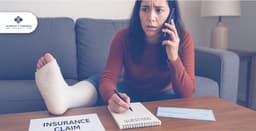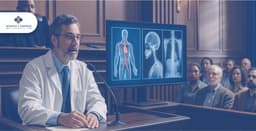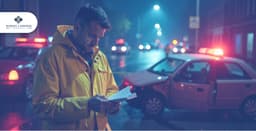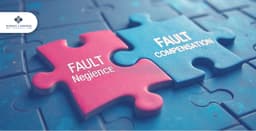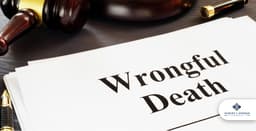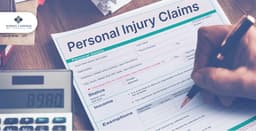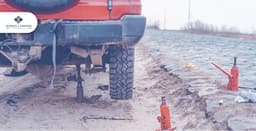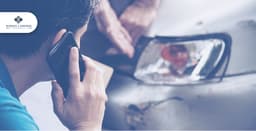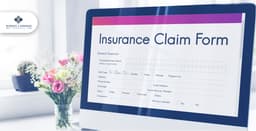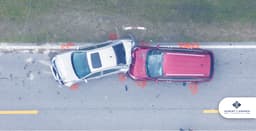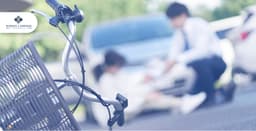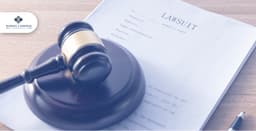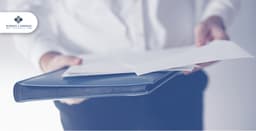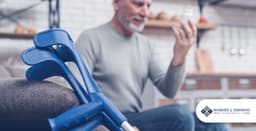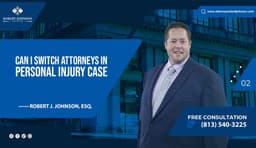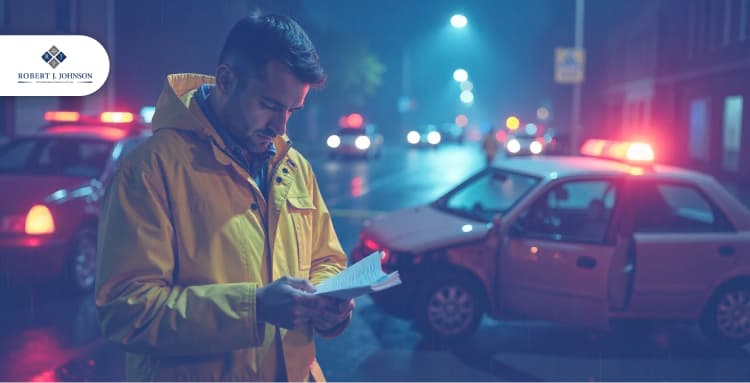
April 15, 2025
How to Prove Liability in a Car Accident Case
After a car accident, your life can quickly become complicated—injuries, repairs, mounting bills—and the question that follows is clear: Who’s responsible? Finding the answer isn’t always easy. Proving liability is a major step in recovering from the incident and ensuring you’re not left facing the consequences of someone else’s actions.
Some cases are settled through negotiations, while others need a closer look, where evidence and the law determine who’s at fault. So, how do you prove it? And, more importantly, how do you protect your right to fair compensation?
1) How Florida’s No-Fault Insurance Affects Car Accident Claims
In Florida, drivers are required to carry Personal Injury Protection (PIP) insurance, which covers medical bills and lost wages after an accident, regardless of who caused it. This means that after a crash, you'll typically start by filing a claim with your own PIP insurance.
However, if your injuries meet certain legal criteria for severity, you might be able to pursue a claim against the at-fault driver for additional compensation. Understanding how PIP works and when you can step beyond it is important for protecting your rights.
For more information on Florida’s no-fault insurance laws visit the Florida Department of Highway Safety and Motor Vehicles.
2) Proving Negligence in a Florida Car Accident Case
In a Florida car accident, proving liability hinges on demonstrating that the other driver acted negligently. To do this, you must establish four key elements that show their actions caused the accident and your injuries:
Duty of Care: Every driver has a responsibility to operate their vehicle safely, just like any reasonable person would. They are expected to follow traffic laws, remain alert, and avoid dangerous behaviors such as speeding or texting while driving.
Breach of Duty: Once you establish that the driver had a duty to drive safely, you need to show they failed to uphold that duty. This could involve actions like running a red light, driving under the influence, or failing to yield to pedestrians.
Causation: It’s important to show that the driver’s actions directly led to the crash. You must prove a clear connection between their behavior and the accident, leaving no room for doubt about how their actions caused the injuries you sustained.
Damages: Finally, you need to prove that you suffered harm as a result of the accident. This can include physical injuries, emotional distress, or financial losses, such as medical bills and lost wages.
3) Must-have Evidence to Make Your Car Accident Claim Strong

When it comes to proving fault in a car accident, solid evidence is important. Here are the predominant pieces of evidence you should gather to support your claim:
Police Report: This official document provides an unbiased account of the accident, including the officer’s observations, any citations or tickets issued, and sometimes their opinion on fault. It serves as an important piece of evidence to establish the facts of the crash. Learn how to request a crash report from the National Highway Traffic Safety Administration.
Photos & Videos: Visual evidence is often the most persuasive. Take clear photos of any vehicle damage, skid marks, road conditions, traffic signs, and any visible injuries you sustained. If possible, capture the surrounding environment, as it can help paint a complete picture of the accident scene.
Witness Statements: Eyewitnesses who saw the accident unfold can provide valuable testimony. Their accounts of what happened before, during, and after the crash can help validate your version of events. Be sure to gather names and contact information from anyone who witnessed the accident.
Dash Cam for Surveillance Footage: If you have a dashcam in your vehicle, it can serve as a critical piece of evidence showing what happened immediately before and during the crash. In some cases, nearby businesses or traffic cameras might have footage of the accident, which can also be extremely useful in proving fault.
Medical Records: Your medical records are essential to show the connection between the accident and your injuries. They provide details on the nature and extent of your injuries, as well as the treatments you've received. This is important when claiming compensation for medical expenses, pain, and suffering.
4) How Traffic Law Violations Can Impact Liability

If the other driver broke Florida traffic laws, it can significantly strengthen your case for liability. Violations like running a red light, speeding, or driving under the influence show a clear disregard for safety and can directly contribute to the accident.
If the police issue any citations at the scene, those violations become valuable evidence in establishing fault. These citations can be used to demonstrate that the other driver’s actions were unlawful. They also show how those actions contributed to the crash, making it easier to hold the driver accountable for the damages you’ve suffered.
5) Using Expert Witnesses to Prove Liability
Expert witnesses can be invaluable in strengthening your case by providing specialized insights into major aspects of the accident. Their testimony can make a notable difference when it comes to proving fault and quantifying the damages you've suffered:
Accident Reconstruction Experts: These specialists use their knowledge of physics, engineering, and accident dynamics to analyze the crash. They can recreate the accident to determine how it occurred, the actions of each driver involved, and ultimately, who is responsible. Their findings provide a scientific foundation that can support your claim of negligence.
Medical Professionals: Doctors, surgeons, or specialists can connect your injuries directly to the car accident. Our expert testimony can explain the severity of your injuries, the necessary treatments, and any long-term effects. This helps ensure that the full extent of your suffering—both physical and emotional—is recognized, strengthening your case for compensation.
Economic Experts: These professionals can assess the financial toll the accident has had on your life. We calculate medical expenses, lost wages, and future financial losses, such as ongoing medical treatments or a reduced ability to work. Our testimony can ensure that all aspects of your economic damages are accounted for, offering a more complete view of your financial recovery needs.
6) How Florida’s Modified Comparative Negligence Rule Affects Your Case

Florida follows a modified comparative negligence rule, which affects the amount of compensation you can recover after an accident. When you are found more than 50% at fault, you are not eligible to receive any damages.
However, when you are partially at fault and 50% or less, you can still pursue compensation. The amount will be reduced by your percentage of fault. For example, being 20% at fault would result in a 20% reduction in your compensation. Understanding this rule is important, as it directly impacts the outcome of your case and the compensation you receive.
Want to explore more? Check out these related resources:
Prove Liability and Protect Your Rights with Florida Car Accident Lawyer Robert J. Johnson
We understand how challenging it can be to prove liability after a car accident. Insurance companies often try to shift blame or minimize your claim. However, we’re here to protect your rights and fight for the compensation you deserve. Here's what we can do for you:
Proving Liability
Comprehensive Investigation: We conduct thorough investigations by gathering police reports, traffic camera footage, witness statements, and accident reconstruction data. This robust evidence helps demonstrate that the other driver was negligent.
Expert Analysis: Our team collaborates with accident reconstruction specialists and medical experts who provide clear insights into how the crash occurred and the extent of your injuries.
Legal Expertise: We use our deep understanding of Florida’s traffic laws and negligence standards to build a strong case that proves the other party’s fault.
Protecting Your Rights
Advocacy in Communication: We handle all interactions with insurance companies and opposing counsel, ensuring that you are shielded from aggressive strategies and complex legal jargon.
Negotiation for Maximum Compensation: Our firm fights for every dollar you deserve, covering medical expenses, lost wages, pain and suffering, and property damage.
Court Representation: If negotiations fall short, we’re fully prepared to take your case to trial, advocating relentlessly for your rights in court. So, if you have any questions or need guidance on your case, please feel free to contact us. We’re here to provide you with guidance and support on your case.
